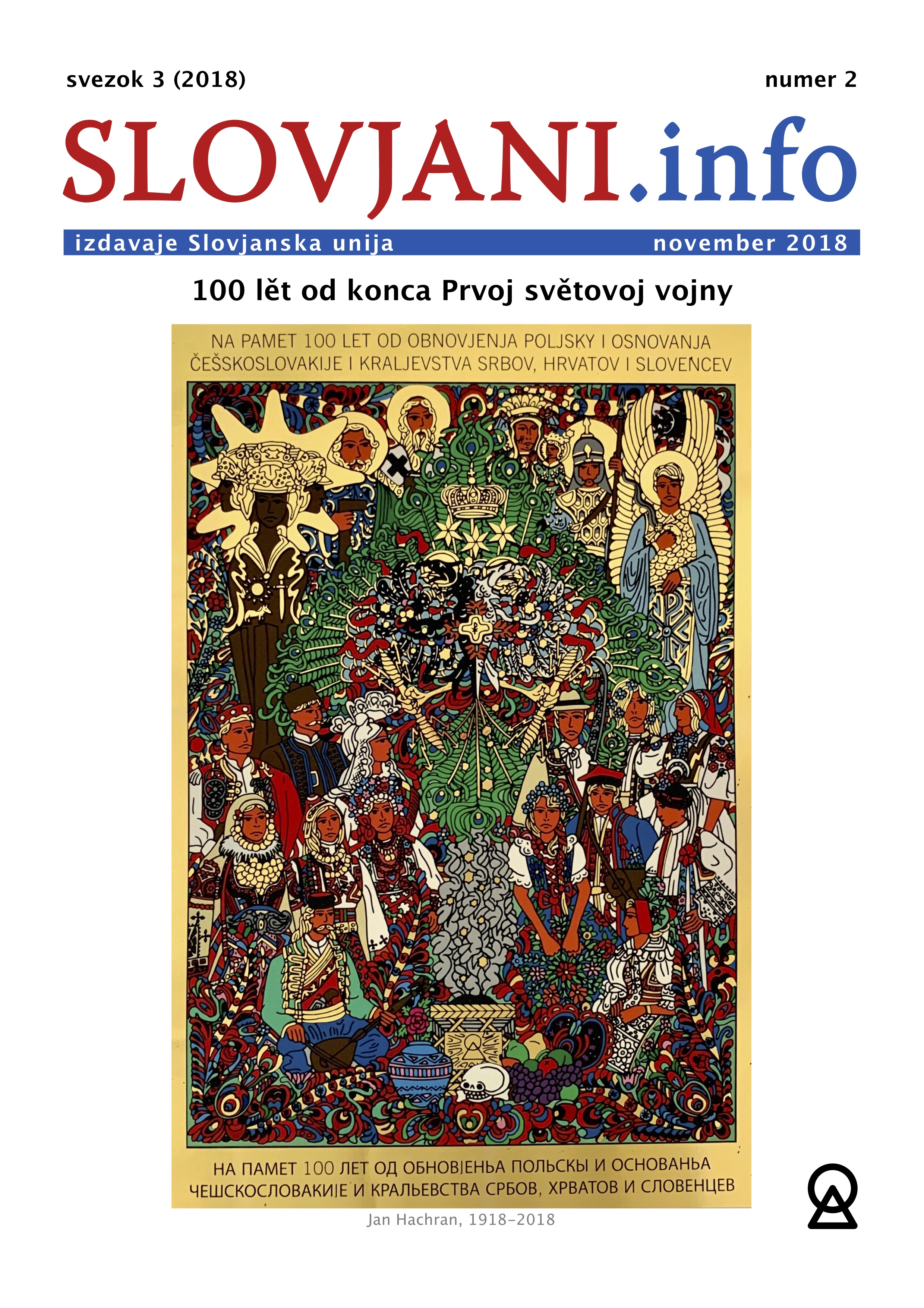Slovjanstvo dnes i zajutra
Slavism - today and tomorrow
Author(s): Vojtěch MerunkaSubject(s): Politics / Political Sciences, Political Essay
Published by: Slovanská unie z. s.
Keywords: Slavs; Slavic world; Slavic reciprocity; Russian and non-Russian Slavs; Slavic future; Slavic strategic goal
Summary/Abstract: Slavs, more precisely Slavic reciprocity, was one of the leading motivational factors of national revival in the 19th century and the overall emancipation not only of the Czech nation but also of most of the Slavic peoples in Europe, which, like the Czechs at that time, did not have their independent states. By the First and Second World Wars, the Slavic world changed dramatically. Many new states have emerged, and communist and fascist totalitarian regimes have also emerged. Now, at the beginning of the 21st century, we are in an extraordinary situation, on the one hand, boosted by the fall of the Soviet Union and its Communist block and, on the other hand, the rise of globalisation. All this dramatically changed the view of Slavicity and the need for Slavic reciprocity. On one side, there are radical conclusions that Slavic reciprocity has already fulfilled its historical role, and we will not need Slavs in the future, but on the other hand, there are yet another strong views that the Slavs are once again facing large-scale planned enslavement. In this article, we will try to find an answer and also explain the long-standing differences in the understanding of Slavic reciprocity by Russian and non-Russian Slavs, and point out the need for a new strategic goal for the future of Slavic nations. / Slovjanstvo, točněje slovjanska vzajemnost, naleželo do glavnyh motivačnyh faktorov narodnogo razbudženja v 19-om věku i polnoj emancipacije netoliko češskogo naroda, ale i bojšej česti slovanskyh narodov Evropy, ktore podobno kako Čehi v tutom vrěmeni ne iměli svoje samostoje državy. Ale Prva i vtora světova vojna dramatično proměnila slovjansky svět. Bylo osnovano mnogo novyh držav i byly takože komunistične i fašistične režimy. Nyně, na početku 21-ogo stolětja jesmo v specijalnoj situaciji, ktora jest posiljena iz jednoj česti razpadom Sovětskogo soveza i jegovogo komunističnogo bloka, i iz vtoroj česti od nastupajučej globalizacije. Tuto vse dramatično proměnilo pogled na slovjanstvo i na potrěbnost slovjanskoj vzajemnosti. Iz jednogo města slyšimo radikalne zaključenja, že slovjanska vzajemnost svoji historičnu rolju davno napolnila i ne bude potrěbna, ale iz drugogo města slyšimo druge podobno nekompromisne mněnja, že Slovjani iznovo trpet od masivnogo planovanogo porabovanja. V tutom tekstu starajemo se naidti odgovor, i takože budemo objasniti dolgovrěmeno ostavajuče različnosti v porazumjenju slovjanskoj vzajemnosti od russkyh i ne-russkyh slovjanov, i budemo načrtati potrěbnost novogo strategičnogo cělja do budučnosti slovjanskyh narodov.
Journal: SLOVJANI.info
- Issue Year: 3/2018
- Issue No: 2
- Page Range: 59-68
- Page Count: 10
- Language: Slavic (Other), Czech

